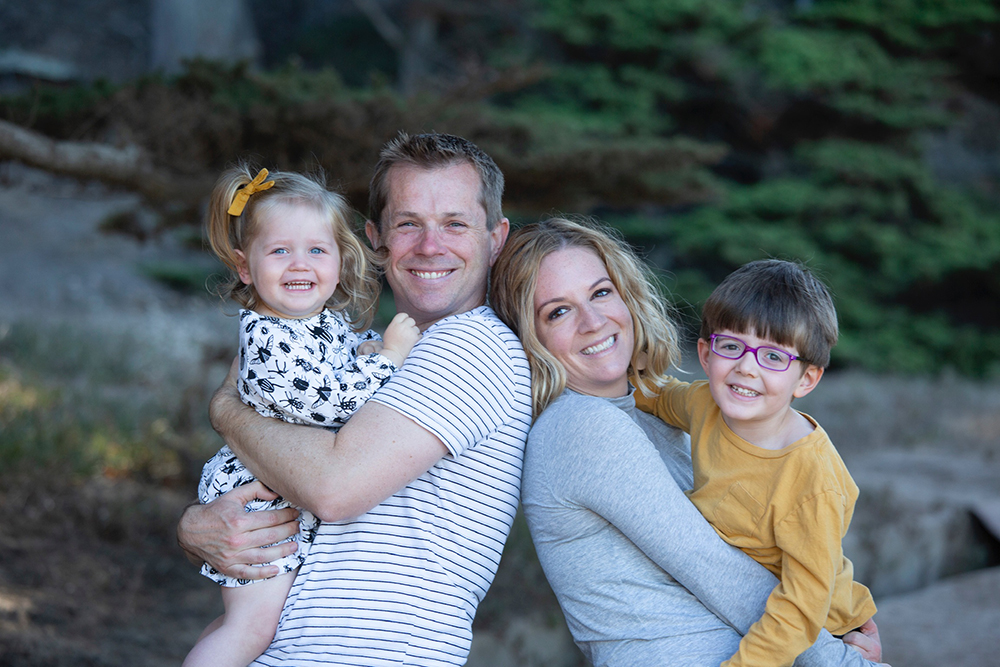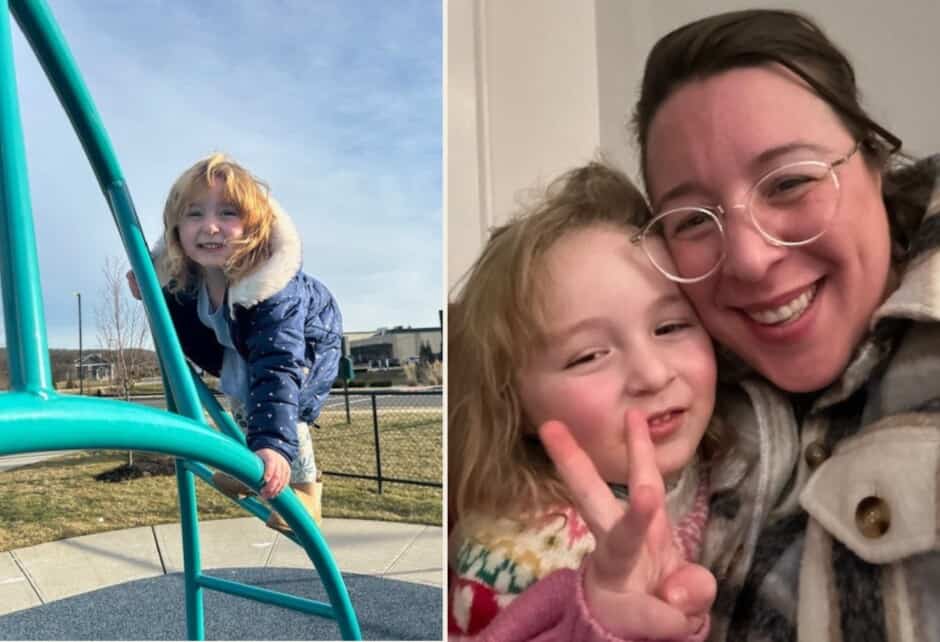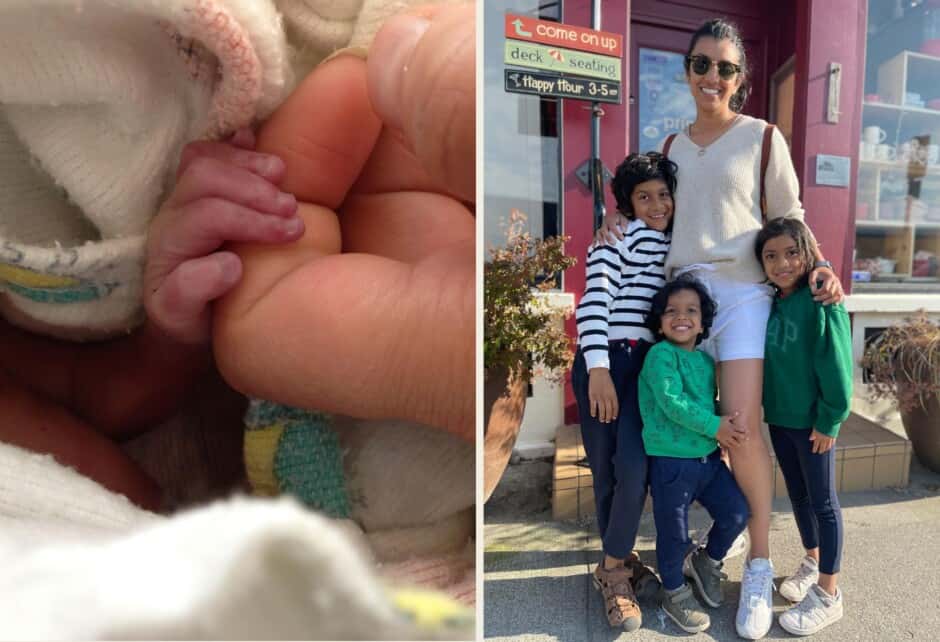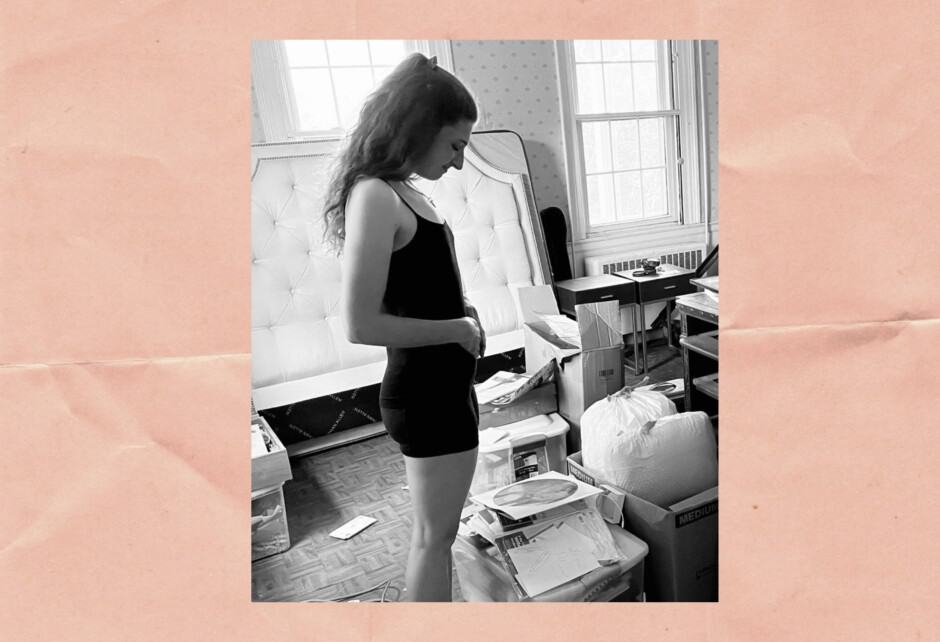
Mom Talk: What I Know Two Years After My Son’s Diagonsis
Written by Allison Pullins
Photography by Photo Courtesy of Allison Pullins
Today’s Mom Talk comes from Allison Pullins, a San Francisco-based mother of two. In candid and emotional detail, Allison tells us the story of her son’s diagnosis with Marfan Syndrome two years ago and the invaluable lessons it has taught her about life and herself since then.
Two years ago today I shattered into a million pieces inside Pediatric Echocardiography Lab #2 at UCSF Medical Center. A cardiologist we’d just met looked at me with weathered, fatherly eyes and said our son had a bulging, weak aorta that wasn’t just big, it was huge. Moana played on the T.V., my two-year-old enraptured. I felt his heart beating in his chest; above it, a deadly aneurysm pulsing with blood. I held him in my arms and tried to be strong as floodgates of tears rushed downward.
Our cardiologist, firmly meeting my gaze—his eyes shimmering too—said, “I can tell by your reaction that you know what this means, Allison.”
I did, and I didn’t.
I went from a normal, working mother of two small children to a parent who has a child with a chronic, life-threatening disease for which there is no cure. It took me 33 years to build the person I was, and in an instant that woman was gone. I buried myself in the sixth floor of the medical building at Mission Bay that day, and the old me haunts the building forever. Every six months when I return for James’s echo, I can feel this woman I was in the walls, down the hallways, in that same echo lab.
Here’s what I knew then.
I knew I had to understand everything about Marfan syndrome, the genetic condition my son was diagnosed with after his first echo. I knew that life was going to be hard for my son, harder than I had expected it to be. I knew that I’d go from the category of mother who rarely worries about her child’s life to the type who contemplated his death daily, if not hourly. I knew that people would talk about me behind my back and say things to my face such as “I can’t imagine what it’s like, Allison.” But the thing was, I wanted them to imagine. I wanted them to feel as horrible as I did, as lost and empty and sad as I was. I wanted them to go there with me. Some people did, many didn’t.
The year following the diagnosis was the most transformational year I’ve ever had. Inside that year I cycled through grief. I cried every day. I couldn’t make the commute to my office without tears. Over and over in my mind I had visions of a future that was no longer open, free, and full of hope: a future of illness, pain, and loss. His dad and I kept thinking of more things we’d never see him do, like skiing, or play a rough and tumble game of soccer. I saw my son as a teenager, just waking up from open heart surgery. I imagined him growing taller, and taller, until his weak muscles and connective tissues couldn’t hold his bones properly. Meanwhile, friends and family shared words of encouragement, impressed by my ability to keep things together. They couldn’t see the hurt inside I never fully unleashed to anyone but myself, inside my own broken spirit. I put one foot in the front of the other, and I soldiered on.
But then, slowly at first: flashes of unbridled joy. My daughter turned one. My son started preschool. My marriage was stronger than ever. I dove even deeper into my yoga practice and continued my immersion into Buddhism. My friends and family showed up for us. They held space for me, beyond what I ever dreamed another person could hold for someone else. I met amazing, brilliant, compassionate kids and adults living with Marfan syndrome and related connective tissue conditions. No, their lives weren’t easy, and yes, they were full of physical pain. But they were such extraordinary people. And they had mostly freed themselves from true suffering. I no longer constantly envisioned my son being hooked up to machines and in wheelchairs: I saw him living a meaningful and rich life colored by the experience of having this condition. And then, I began to realize some radical things about myself.
Here’s what I know now.
When I shattered, I assumed I’d have to eventually pick up the pieces, but then I realized I’m stronger when I’m broken apart. I never knew how fiercely I could love until I realized how precious and fleeting life is. Of course, we all “know” we are going to die, and that we could end up burying our children. Before this diagnosis it was an intellectual concept; afterwards I knew it inside my soul. Suddenly I was no longer cautious of the friends in my life who had survived major trauma. I wanted to ask them about it, and I wanted to learn what they discovered about themselves and the world. I stopped suffering, and I started living. I opened up, I embraced Zorba’s “great catastrophe” of life, and moved forward. I realized that if I didn’t live every single day as the best version of myself, I was missing the point.
In this shattered state I saw humanity more clearly. I became more tolerant: I met people where they were instead of where I thought they should be. I stopped assuming anything about anyone else’s life. But in many other ways I became intolerant: I couldn’t deal with my negative body image issues I’ve always struggled with, so I stopped having them. I could no longer deal with manipulative personal relationships, so I dumped people. I couldn’t accept the blatant racism and White supremacy I saw destroying my neighborhood, our schools, our healthcare system, and our country. So, I started talking about it, and started doing something about it. In my brokenness, I had woken up.
When I was a child, I wondered why I was alive and what my purpose on earth would be. Maybe I read John Irving’s A Prayer for Owen Meany too young, or perhaps I was maybe more like my paternal grandmother than I realized. Growing up, I rather haphazardly made decisions and carved a path for myself that meandered here and there. I was never disappointed or unhappy in my life or my choices, but I also lacked this narrative I was convinced was there, somewhere, waiting to be uncovered.
In the depths of my misery and grief following my son’s diagnosis, I knew. I saw it. My purpose. Suddenly all my strengths came into focus; I didn’t seem like this odd collection of traits, desires, and interests. Some people say that you are given the children you deserve. Friends would say to me that they didn’t know what they would do with a disabled, sick child who simply wouldn’t get better. They were certain that they would continue to question why this happened to their child, to their family.
But I never asked those questions. I accepted it, and that’s how I continued to feel and experience my grief. What people might not realize about grief is that it is a powerful catalyst for growth, change, and love. The best, most unconditional kind of love there is. I threw myself into this love, and I’m never retreating.
I am more confident in who I am, what my values are, and that I can do hard things. That I am bigger than any pain I have. That my son and daughter would grow up to change the world and evolve into the highest form of human they could reach. I walked through fire to get here, and granted, these are by far not the most difficult days of my life. Those are still ahead of me; however, my confidence that I can survive what tomorrow brings is unwavering.
On the second anniversary of my son’s diagnosis, this is what I know.
Are you a mother with something to say? Send us an email to be considered for our “Mom Talk” column.
Write a Comment
Share this story




As I read Allison’s experience, I was touched deeply! Allison has been given the ability to verbalize her feelings and how she has grown through mind numbing pain. This is a story that brings hope to anyone willing to listen and learn how good can truly come out of events we would never choose for ourselves.
So so powerful and beautifully written!